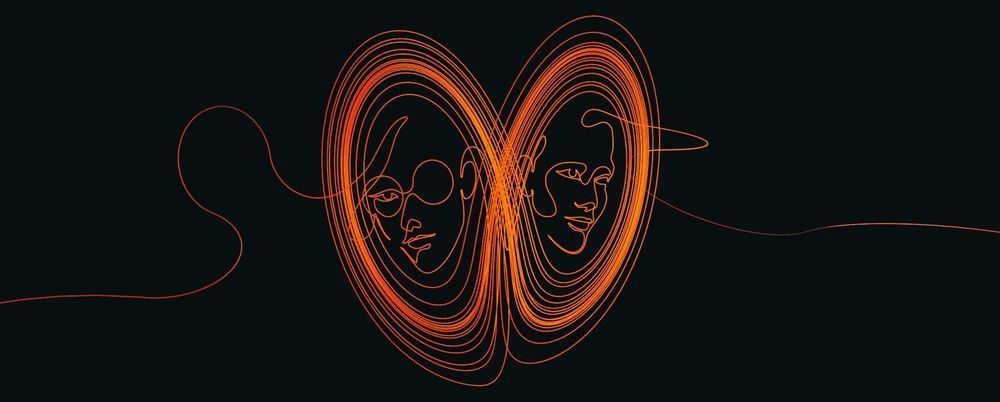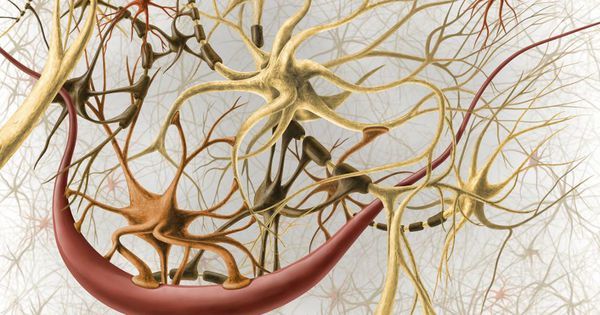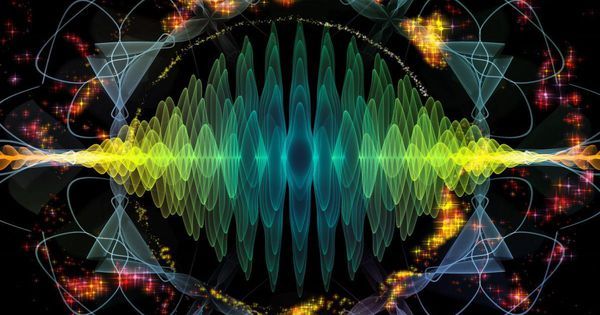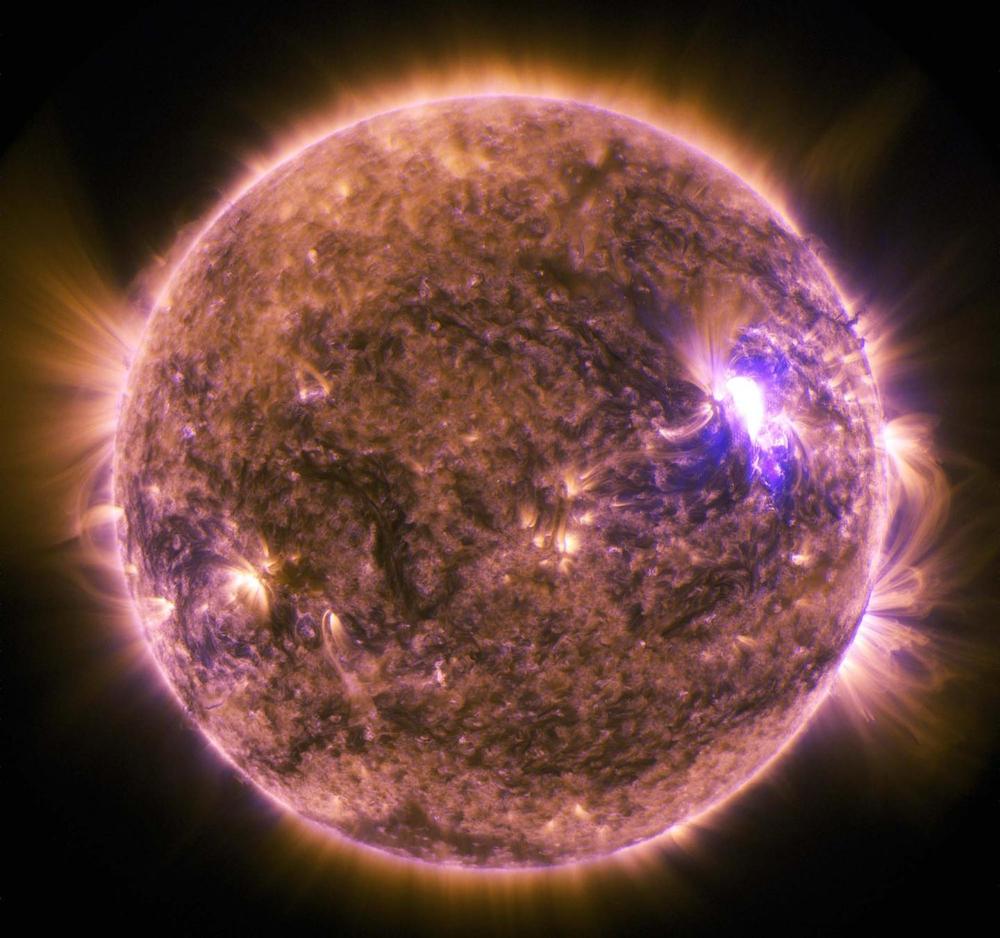Page 7849
May 26, 2019
Researchers Find ‘Oldest Collection of Non-Fossil Meteorites’ in Chile’s Atacama Desert
Posted by Genevieve Klien in category: futurism
An international team of scientists has found a wealth of well-preserved stony meteorites in the Atacama Desert that allowed them to reconstruct the rate of falling meteorites over the past two million years.
May 25, 2019
An astronomer in the Netherlands captured stunning video of 60 Starlink satellites zooming across the sky
Posted by Alberto Lao in category: satellites
A stunning video shot by a Dutch astronomer captured a string of roughly 60 Starlink satellites zooming across the night sky, one day after they were launched into orbit.
The video shows the “train” of satellites speeding in a straight line as they orbit around the earth.
The astronomer, Marco Langbroek, wrote in a blog post that he had calculated the search orbit himself to find out when they would pass by, and “stood ready” with his camera. The train zoomed by within three minutes of his predicted time.
May 25, 2019
Scientists Project Holograms Into The Brain To Create Experiences
Posted by Paul Battista in categories: genetics, holograms, neuroscience
One day soon you may be filling your lungs with crisp ocean air, your arms bathed in warm light as the sun sets over softly lapping waters and you may wonder, is this real? Or are scientists projecting holograms into my brain to create a vivid sensory experience that isn’t actually happening? A group of researchers at University of California, Berkeley are in the early stages of testing their ability to create, edit and scrub sensory experiences from your brain, both real-time and stored experiences: memories.
Using light to make us see what isn’t there.
Different sensory experiences show up in brain imaging as patterns of neurons firing in sequence. Neuroscientists are trying to reverse-engineer experiences by stimulating the neurons to excite the same neural patterns. At present, the steps to accomplish this are a little invasive. Scientists genetically modify neurons with photosensitive proteins so they can gingerly manipulate neurons using light. The process is known as optogenetics. Also, a metal head plate gets surgically implanted over the targeted area.
Continue reading “Scientists Project Holograms Into The Brain To Create Experiences” »
May 25, 2019
No, Night Owls Aren’t Doomed to Die Early
Posted by Xavier Rosseel in category: life extension
But while saying that night owls are going to die early makes for an eye-catching headline, the real story isn’t quite that simple.
Despite alarmist headlines and a study that suggested morning people live longer, the truth is more complicated.
May 25, 2019
A month after the fire that ravaged the Notre Dame Cathedral in Paris
Posted by Genevieve Klien in categories: climatology, government
A month after the fire that ravaged the Notre Dame Cathedral in Paris, scientists and research bodies are getting organized to help restore the building—and advance scientific knowledge.
At a public hearing held yesterday by France’s Parliamentary Office for the Evaluation of Scientific and Technological Options (OPECST), academics explained how they can contribute to the government’s efforts to restore the cathedral, which was partly destroyed on 15 April.
“This catastrophe is, in the end, a privileged moment for research, because we’ll have access to materials that we otherwise wouldn’t be able to access,” said Martine Regert, deputy scientific director of the Institute of Ecology and Environment at the French national research agency CNRS. For example, analyzing certain isotopes in the cathedral’s timber frame could provide insights about the medieval climate, said Philippe Dillmann, a research leader at CNRS’s Institute for Research on Archeomaterials.
Continue reading “A month after the fire that ravaged the Notre Dame Cathedral in Paris” »
May 25, 2019
A Quantum Revolution Is Coming
Posted by Genevieve Klien in categories: particle physics, quantum physics, security
Quantum physics, the study of the universe on an atomic scale, gives us a reference model to understand the human ecosystem in the discrete individual unit. It helps us understand how individual human behavior impacts collective systems and the security of humanity.
Metaphorically, we can see this in how a particle can act both like a particle or a wave. The concept of entanglement is at the core of much of applied quantum physics. The commonly understood definition of entanglement says that particles can be generated to have a distinct reliance on each other, despite any three-dimensional or 4-dimensional distance between the particles. What this definition and understanding imply is that even if two or more particles are physically detached with no traditional or measurable linkages, what happens to one still has a quantifiable effect on the other.
Now, individuals and entities across NGIOA are part of an entangled global system. Since the ability to generate and manipulate pairs of entangled particles is at the foundation of many quantum technologies, it is important to understand and evaluate how the principles of quantum physics translate to the survival and security of humanity.
May 25, 2019
Scientists uncover exotic matter in the sun’s atmosphere
Posted by Genevieve Klien in categories: nuclear energy, space travel
Scientists from Ireland and France today [Thursday 23rd May] announced a major new finding about how matter behaves in the extreme conditions of the Sun’s atmosphere.
The scientists used large radio telescopes and ultraviolet cameras on a NASA spacecraft to better understand the exotic but poorly understood “fourth state of matter”. Known as plasma, this matter could hold the key to developing safe, clean and efficient nuclear energy generators on Earth. The scientists published their findings in the leading international journal Nature Communications.
Most of the matter we encounter in our everyday lives comes in the form of solid, liquid or gas, but the majority of the Universe is composed of plasma — a highly unstable and electrically charged fluid. The Sun is also made up of this plasma.
Continue reading “Scientists uncover exotic matter in the sun’s atmosphere” »
May 25, 2019
Origami-inspired materials could soften the blow for reusable spacecraft
Posted by Genevieve Klien in categories: materials, space travel
Space vehicles like SpaceX’s Falcon 9 are designed to be reusable. But this means that, like Olympic gymnasts hoping for a gold medal, they have to stick their landings.


















